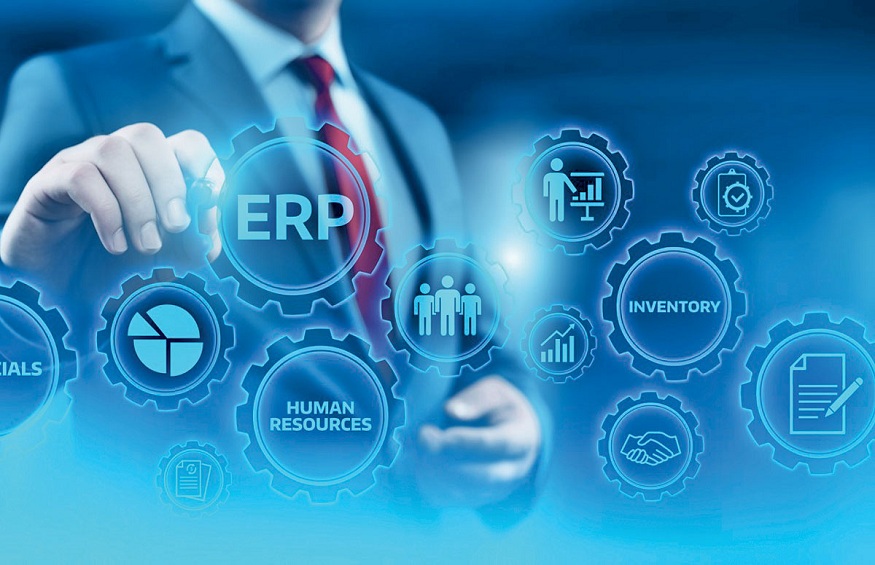Modern businesses generate a significant amount of data from various sources. However, to effectively manage this data, they need to employ one or more sophisticated and integrated solutions, such as ERP software. Indeed, ERP solutions allow companies to manage data efficiently and productively. In the rest of this article, you will see how ERP software works and explore the different key steps in the operation of an ERP tool.
Definition of ERP software
Developed in the 90′s to help companies manage their resources efficiently, professional ERP software was designed to automate accounting and financial tasks. Over time, it has evolved to include new, more complex features.
ERP software today is a business management solution that collects, integrates and analyzes data from various sources to provide an overview of business activities. ERP simply means: Enterprise Resource Planning. Indeed, this software is designed to optimize business processes, improve collaboration and decision-making, and then strengthen the competitiveness of the company. There are several ERP type software:
How does ERP software work?
ERP management software is a system that brings together many applications for the management of operational and administrative activities of companies. Indeed, its operation results in the correlation of the different departments of a company. This is done in several distinct steps and allows you to have an overview of all the company’s data.
Data collection: first step in the operation of an ERP software
Data collection consists of gathering information from different sources such as inventory management systems, supply chain management systems, human resource management systems, accounting systems, sales systems and marketing.
However, the collection of this data is not done without the involvement of other tools. ERP or PGI (Integrated Management Software) software uses tools such as:
The purpose of data collection is to gather all the information needed for decision making. However, the information collected must be accurate, complete and up-to-date to ensure an accurate analysis.
Data processing: second stage of operation of ERP software
Once the information has been collected, the next step is data processing. Indeed, after having gathered the information, the ERP software then makes it possible to proceed with:
However, this step requires data processing tools such as data validation algorithms, data normalization algorithms as well as data transformation and data deduplication algorithms.
The purpose of this step is to ensure the reliability and consistency of the data collected. This step is important to ensure that the data can be used effectively in the next step, which is data integration.
Data integration: third stage of operation of an ERP software
This step consists of merging the information collected from the different sources to create an overview of the company’s activities. Specific tools are needed during this step. Among others, there are data integration tools, data analysis tools as well as data modeling tools.
The purpose of data integration is to provide an overview of business activities to aid in decision making. Also, it should be added that the data must be integrated in such a way as to allow real-time analysis and offer actionable information to decision makers.
Data analysis: fourth and last step in the operation of ERP software
Here, the exercise is to use the collected data and integrate it to identify trends, problems and opportunities for the company. For this, data analysis tools, business intelligence tools, data modeling tools and data visualization tools are required.
In this context, the objective is to provide decision-makers with the information necessary to make informed decisions. In addition, data analysis also allows to see potential problems before they become a major problem and to find the way to overcome it. Each of these steps is essential to ensure that the data collected is beautiful and accurate and can be used to make informed decisions.
Ready to use ERP software in your business?
Using ERP software for your business can be a great opportunity to streamline operations and better understand how data is managed. With ERP software, businesses will be able to automate and store large amounts of data while simultaneously providing key insights and analytics. Additionally, implementing an ERP system helps companies perform financial planning, budgeting and forecasting, as well as inventory management and customer relationship management. As an added bonus, ERP software also facilitates human resources tasks, such as payroll processing, employee scheduling, and recruiting activities. By using an ERP system, companies are sure to improve their efficiency, their overall productivity and profitability. All in all, it is clear that investing in an enterprise resource planning solution is a smart move for any modern business to ensure its future success through enhanced data analysis capabilities. Consider exploring the benefits of using ERP software today!

